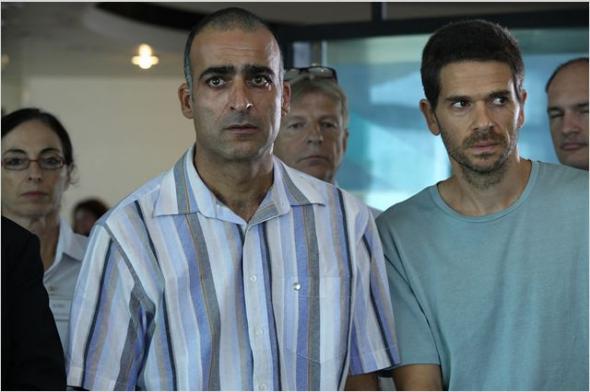Sunday night’s double-episode Season 4 premiere of Homeland was a turning point. Brody (Damien Lewis) is gone, and along with him the show has jettisoned any resemblance to its first season. The love triangle involving Brody and Carrie (Claire Danes) that tortured the most recent seasons is gone. So is the entire premise of the series: A prisoner of war returns home and tries to adjust to life while the rest of the world watches to see if he can—oh, and also the CIA tries to figure out if he’s flipped. Some reviewers, including Slate’s Willa Paskin, have heralded this as a positive thing, saying that Homeland is good again.
Perhaps, but it’s also a completely different show. Instead of telling a strong central story about the repercussions of war and its affects on military and civilian life, the show has refocused on the CIA and adopted a rigid government-procedural feel. When the new episode attempted to delve into real human emotions—as when Quinn (Rupert Friend) drunkenly bottomed out in response to the traumatic death of a co-worker—it felt clumsy, reminiscent of the failures of Seasons 3 and 4. And the rest of the premiere emphasized the weakest parts of the series: internal CIA politics and Carrie’s “magical” mental illness.
What if I told you that you didn’t have to settle for the mediocrity of Season 4, that you could have all the riveting, emotion-filled drama of Season 1—and without the far-fetched love triangles? What if I told you that a show combining all the best parts of Homeland existed and its entire run is streaming on Hulu? No need for hypotheticals: The Israeli inspiration for Homeland is that show. It’s time to abandon the American version and watch it instead.
Prisoners of War (Hatufim in Hebrew) and Homeland have the same basic premise. In Prisoners of War, two prisoners return after 17 years—more than twice as long as Brody was in captivity—and have to readjust civilian life. In Homeland, one of the two prisoners returns and the other has been brainwashed. In Prisoners of War, two of the three return and it’s not clear until Season 2 what is up with the third prisoner. I won’t spoil it, because it’s one of the prime examples of what Prisoners of War does better than Homeland. Not only does it keep you guessing about which side people are on and the emotions motivating them—when it reveals the answer, you’re actually satisfied with how they got there.
Nimrod (Yoram Toledano), the prisoner whose family situation is most similar to Brody’s, returns to his wife and daughter and to a son he’s never met. Uri (Ishai Golan), the other prisoner, returns to find out that his fiancée has married his brother and they have a son. Uri and Nimrod play off each other, readjusting differently and serving as each other’s sounding boards. This allows the viewer to understand what they’re going through in a way that is never really possible with Brody—who is thrust back into life (and politics) much faster than is healthy or even plausible.
But the best part about Prisoners of War is that the Carrie character—the principal CIA agent—is barely a character. She’s not bipolar and she’s not involved in any romance. She does go on a date with Uri, but she’s only following orders. The character she does pursue romantically rejects her. And so the show can focus on its central story, which is really all the drama we need.
Instead, the focus is on the prisoners’ return and how it affects them and the people at home who waited so many years. The show also follows the sister of the soldier who doesn’t return in Season 1, and we see how different her adjustment is. In a time of You Won’t Believe What Happens Next TV, Prisoners of War has a decidedly slower pace. Yes, there are politics and crazy, top-secret plans—including a Jason Bourne-ish character in Season 2—but they actually make narrative sense. And the entire equivalent of the CIA isn’t blown to smithereens just to get rid of a character. As I told June Thomas during Season 2, where Homeland is obsessed with suspense, Prisoners of War is obsessed with emotions—that is, with fully fleshed out characters who make decisions that are sad and thoughtful and leave you feeling drained in the best possible way. What does Homeland leave you with?
